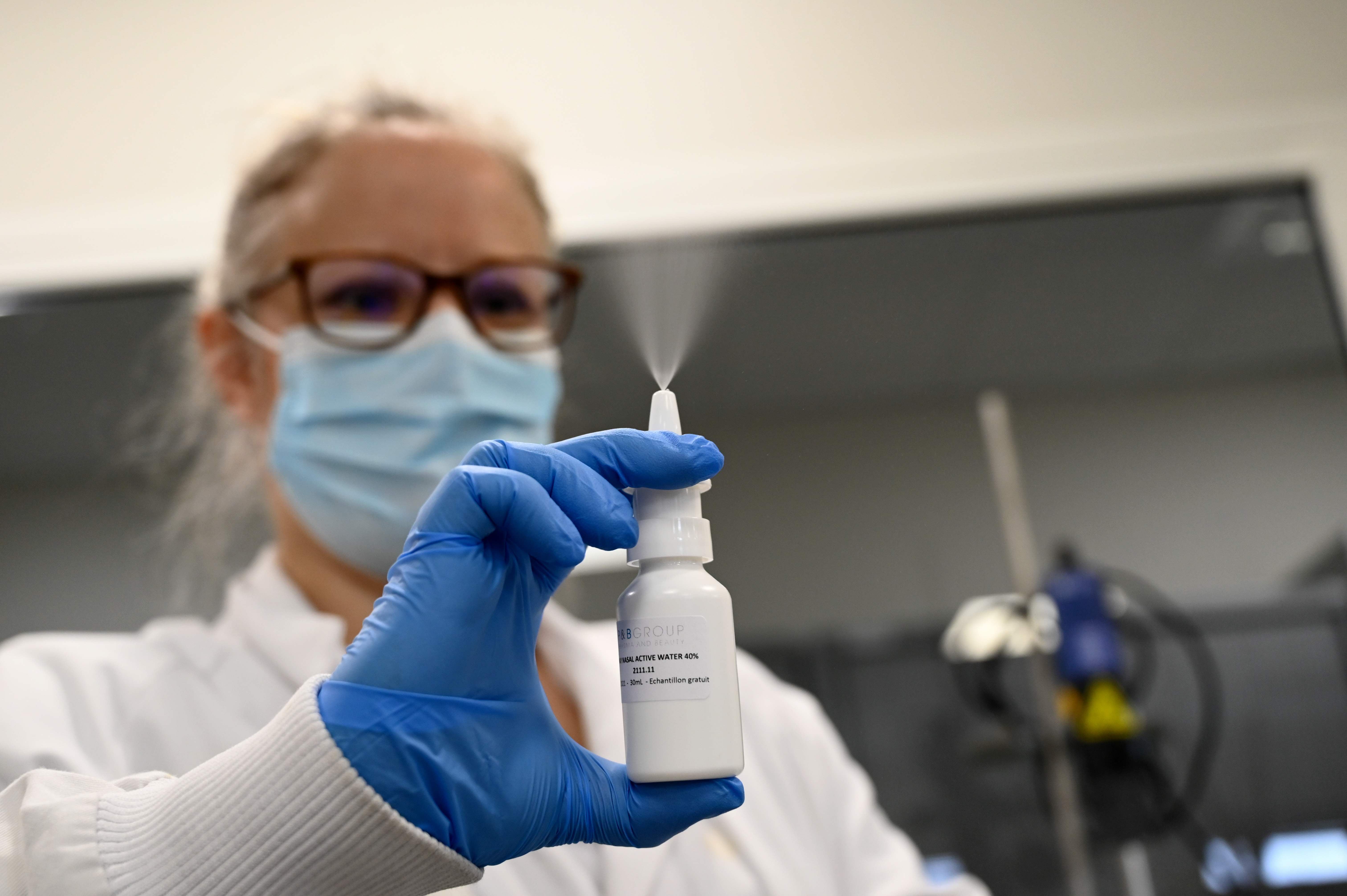Covid vaccine spray could be more effective than injections, scientists say
Trials using the smallpox virus in mice offer hope for a cheap and easy ‘second generation’ vaccine, writes Peter Stubley

Scientists are developing an inhaled Covid vaccine that could be more effective than an injection.
Researchers at MIT hope their “Trojan horse” delivery system will activate a strong immune response in the cells lining the airways to attack the virus as soon as it lands.
The team have successfully tested it for the smallpox virus in mice and are now turning their attention to coronavirus – although they believe their method could be also be used for flu, HIV and even preventing cancer.
Unlike the existing nasal spray for flu, which uses live, weakened viruses, the researchers used peptide proteins which mimic viruses.
While peptide vaccines are safer and easier to produce, it is more difficult for them to cross the mucosal barrier in the throat and lungs to spark an immune response.
The researchers attempted to solve this problem by using natural albumin proteins found in the bloodstream as a “chaperone” for the vaccine.
For their study, published in the journal Science Immunology, they attached a string of fat molecules, which bind to albumin, to a peptide smallpox vaccine and delivered it to mice by the throat.
Read more:
The researchers found that the inhaled vaccine led to a 25-fold increase in T cell (part of the immune system that focuses on specific foreign particles) responses in the lung compared to traditional immunisation via injection.
They concluded that their findings “lay the groundwork for further development of amphiphilic mucosal vaccines delivered via an aerosol”.
Senior author Darrell Irvine, professor of biological engineering at MIT, said these type of inhaled vaccines could potentially be used to prevent cancer from developing in the lungs.
He said: “In this paper, we specifically focused on T cell responses that would be useful against viruses or cancer, and our idea was to use this protein, albumin, as sort of a Trojan horse to get the vaccine across the mucosal barrier.
“In both the virus and the tumour experiments, we’re leveraging this idea that these memory T cells set up shop in the lungs and are waiting right there at the barrier.
“As soon as a tumour cell shows up, or as soon as a virus infects the target cell, the T cells can immediately clear it.”
Scientists in the UK are also assessing the possibility of creating vaccine sprays or tablets to replace jabs in the future.
In September researchers announced they were testing an inhaled version of the Oxford-AstraZeneca vaccine to determine whether it was safe and effective.
Professor Sarah Gilbert, who led the team which developed the vaccine, said that two injections by health professionals was “not a good way of delivering vaccines” on a large scale compared to tablets, patches or nasal sprays.
However, she told MPs that it would “take time to develop” these types of second-generation vaccines.
Subscribe to Independent Premium to bookmark this article
Want to bookmark your favourite articles and stories to read or reference later? Start your Independent Premium subscription today.
Join our commenting forum
Join thought-provoking conversations, follow other Independent readers and see their replies
Comments